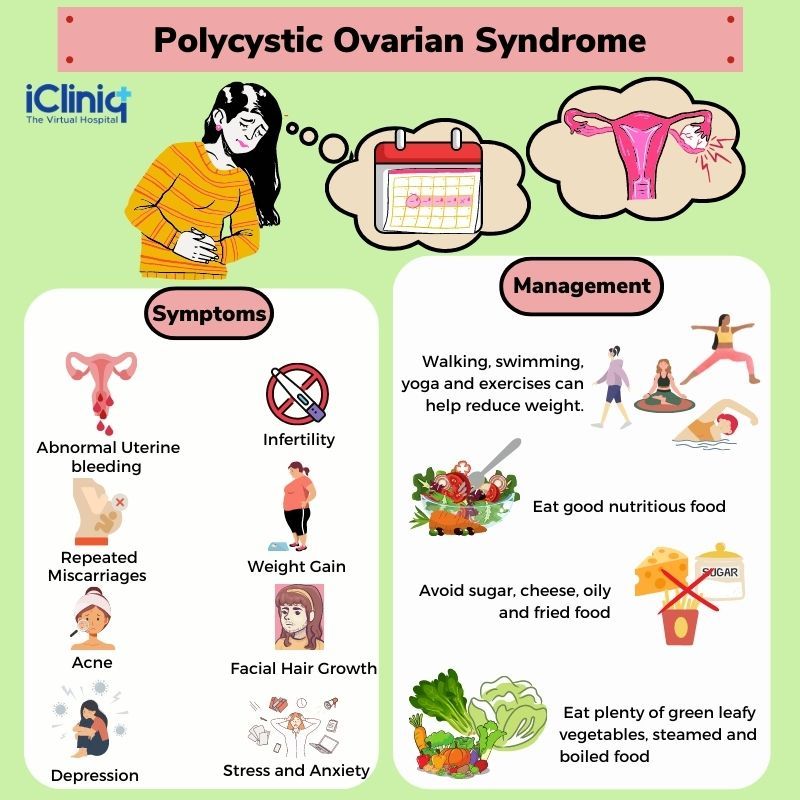Polycystic Ovarian Syndrome (PCOS) is a hormonal disorder that affects women of reproductive age. It is characterized by irregular periods, high levels of male hormones (androgens), and small cysts on the ovaries. PCOS can lead to a variety of symptoms, including weight gain, acne, and excess hair growth.
Diagnosis and Treatment
Diagnosing PCOS can be challenging, as it does not have a single test. Instead, doctors will look at your symptoms, do a physical exam, and possibly order blood tests to check hormone levels. Treatment for PCOS focuses on managing symptoms and preventing long-term complications, such as diabetes and heart disease.
Lifestyle Changes
One of the most important ways to manage PCOS is through lifestyle changes. This includes eating a healthy diet, exercising regularly, and maintaining a healthy weight. A diet rich in fruits, vegetables, whole grains, and lean proteins can help regulate blood sugar levels and improve insulin resistance, a common issue for women with PCOS.
Medications
In addition to lifestyle changes, some women with PCOS may benefit from medications. Birth control pills can help regulate menstrual cycles and reduce symptoms such as acne and excess hair growth. Metformin, a diabetes medication, can also be prescribed to help control blood sugar levels and improve insulin sensitivity.
Fertility and Pregnancy
PCOS can affect a woman’s fertility, making it more difficult to get pregnant. However, many women with PCOS are able to conceive with the help of fertility treatments. If you are trying to conceive, talk to your doctor about your options, including medications and procedures such as in vitro fertilization (IVF).
Managing PCOS Long-Term
Managing PCOS is a lifelong journey, but with the right support and treatment, it is possible to live a healthy and fulfilling life. Regular check-ups with your doctor, healthy lifestyle choices, and staying informed about your condition are key to managing PCOS long-term.
Support and Resources
Living with PCOS can be challenging, but you are not alone. There are many resources available to help you navigate your journey with PCOS, including support groups, online forums, and educational materials. Remember to reach out for help when you need it, and don’t be afraid to ask questions or seek advice from healthcare professionals.
Conclusion
PCOS is a complex condition that requires careful management and support. By taking steps to improve your lifestyle, working closely with your healthcare team, and staying informed about your condition, you can successfully manage PCOS and live a healthy, fulfilling life.
References:
1. Mayo Clinic. (2021). Polycystic ovary syndrome (PCOS). Retrieved from https://www.mayoclinic.org/diseases-conditions/pcos/symptoms-causes/syc-20353439

